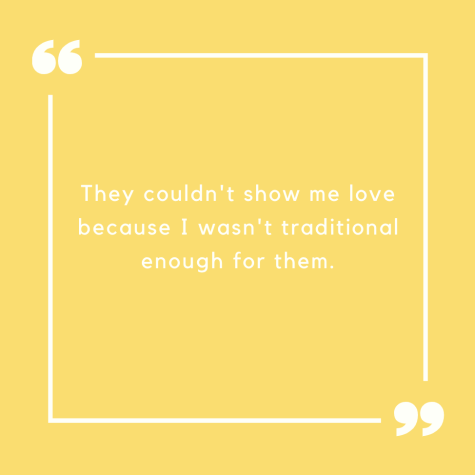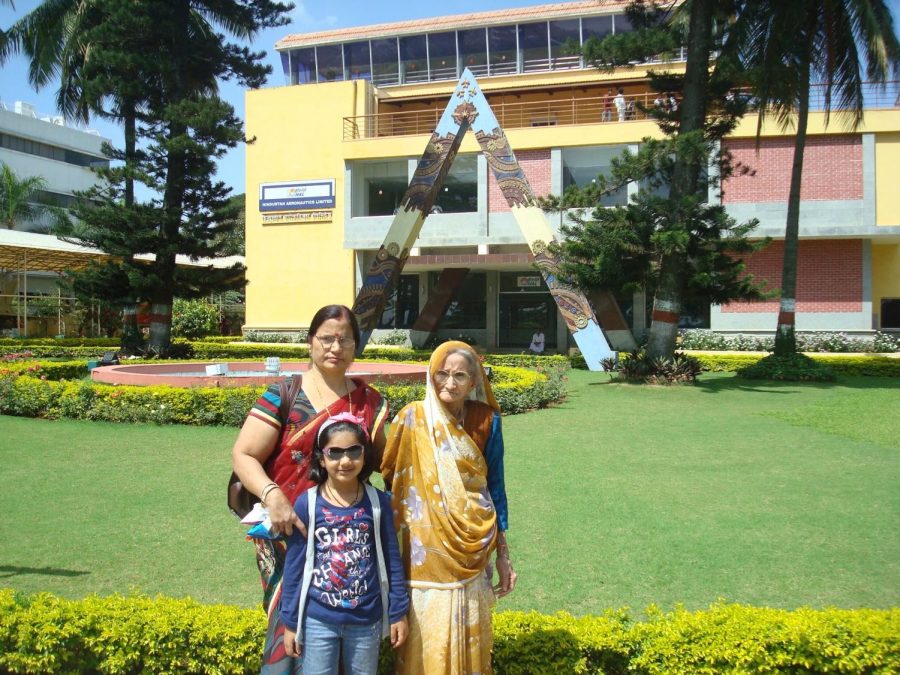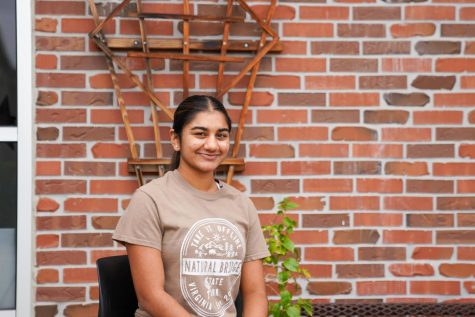Bridging the gender gap
Working with my grandparents to break their traditional beliefs
My grandparents struggled to accept my academically-inclined nature, attempting instead to have me stick with more traditional beliefs.
April 15, 2023
When my nani discovered that my family’s firstborn child was going to be a female, she asked my mom to get an abortion. My mom flatly refused, which is fortunate because that growing child was me.
When it came to my grandparents, I had gotten used to being treated like a tertiary character in my own storyline for as long as I could remember. I’d gotten used to my male cousins receiving more attention than me or receiving hints about how I was reaching a “marriageable age”: it was the norm. This was especially true when it came to my academics: my entire childhood, my grandparents were blatantly uninterested. Anytime I excitedly approached them about the newest book I had read or the spelling bee I had won, they “mhm-ed” and “nice-ed” with the blankest of expressions. At times, they’d simply walk away from me, leaving me standing with a hard copy of my latest short story in my hands, my excited expression morphing into one of hurt.
My parents had always emphasized the importance of academics and shown appreciation for even the smallest of my achievements, and I struggled to understand why my grandparents didn’t feel the same way. For a long time, I felt neglected, confused and rejected; conversations about academics with them felt futile and pointless.
As I grew and began to open up to my parents about the way I felt, they explained my grandparents’ traditional background. My grandmother was 18 years old when she married my grandfather. She left her family to travel to her husband’s village estate, didn’t finish her education and assumed the role of the house’s caretaker. When my grandmother gave birth to two boys, she was the pride of her village, the model wife and mother. They’d grown up in a village that emphasized the traditional, stereotypical belief in the inherent inferiority of women, which, in the present, had translated into a staunch viewpoint that females should also have limited involvement in academic spheres. In other words, they thought that I shouldn’t be involved in the academic realm. They couldn’t show me love because I wasn’t traditional enough for them.
I was infuriated. I simply couldn’t understand why my grandparents felt determined to hold on to prejudiced views in a world that was supposed to empower women instead of holding them back. I was furious that they thought my gender was detrimental to my future, that it meant I couldn’t have a future. And so, I began to push myself to achieve to show them that my gender meant nothing to my success. However, in the process, I pushed them away; for three years, I had no contact with my grandparents.
As their absence from my life became more apparent over the years, I began to regret keeping my distance, especially as I realized that I had been misconstruing their learned societal values as direct faults of their own. While I still believed that my grandparents’ belief systems were flawed, I began to understand why they held those misogynistic beliefs; their viewpoints were products of their upbringing during a time that labeled females as economic liabilities rather than assets to families. I understood that it was their circumstances that were the issue rather than them. I had let my frustration block me from hosting potential conversations that might have sparked change.
My freshman year, intent on introducing new values and repairing our relationship, I reinitiated contact with my grandparents. To gain a more empathetic understanding of the historical, economic and cultural context of their views, I educated myself on their perspective by researching the history and current state of gender roles within East and South Asian societies. We began by discussing the importance of advancing women in the modern, changing world. I referenced historical, cultural and current examples of sexism to demonstrate that misogyny isn’t an abstract issue but a form of prejudice that constantly affects women.
It was an incredibly difficult undertaking; after having minimal contact for so long, we were hesitant to converse with each other openly, and our initial discussions often ended with us all feeling frustrated. However, after months of informative conversation, maintaining immense patience with each other and relearning to trust one another, we’ve made progress. My grandparents have now grown to understand my academic aspirations and hold an increased acceptance of modern feminist ideals.
Although we’re still working to close the gap between our beliefs, I’m proud that we can now talk about our views without them getting in the way of our ability to care for one another. I’m grateful to them for any effort they make to change their learned cultural values. Most of all, though, I’ve learned to respect the cultural and social roots of differing perspectives instead of instantly dismissing them for being antonymous to my own beliefs. Additionally, I learned that shifting opposing viewpoints is better accomplished through encouraging change rather than preaching it.


















